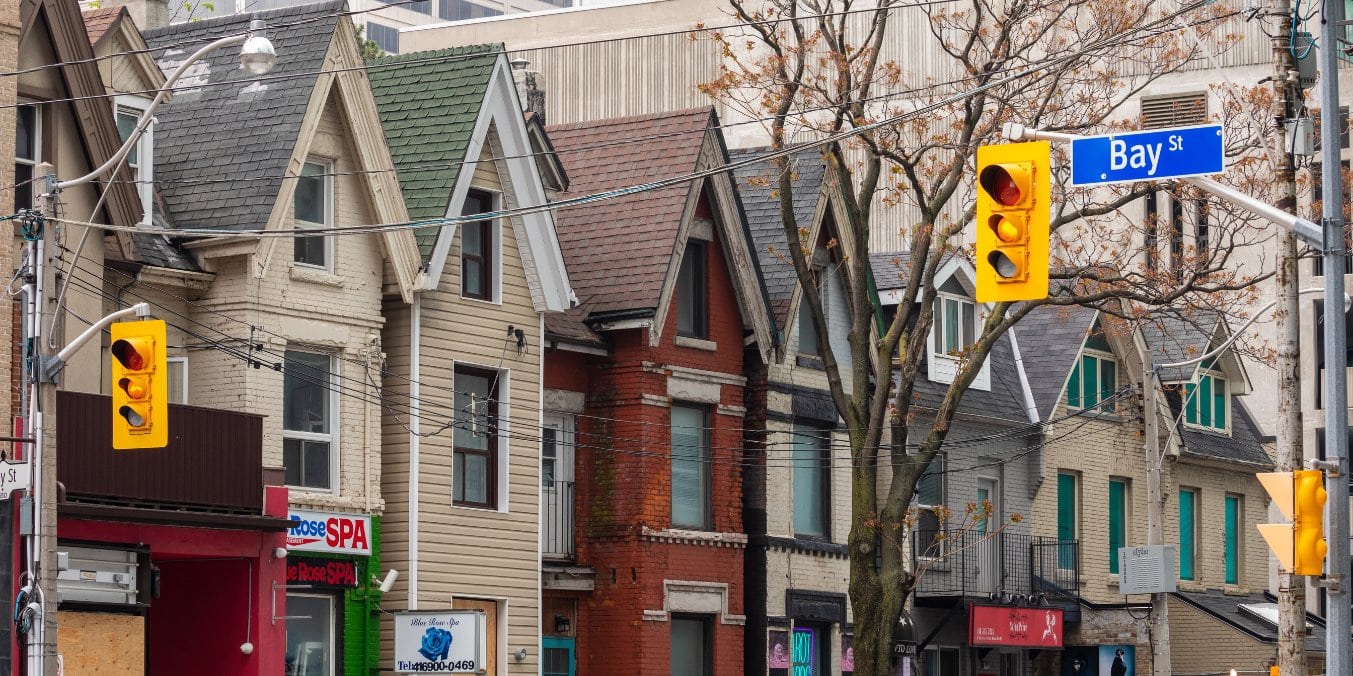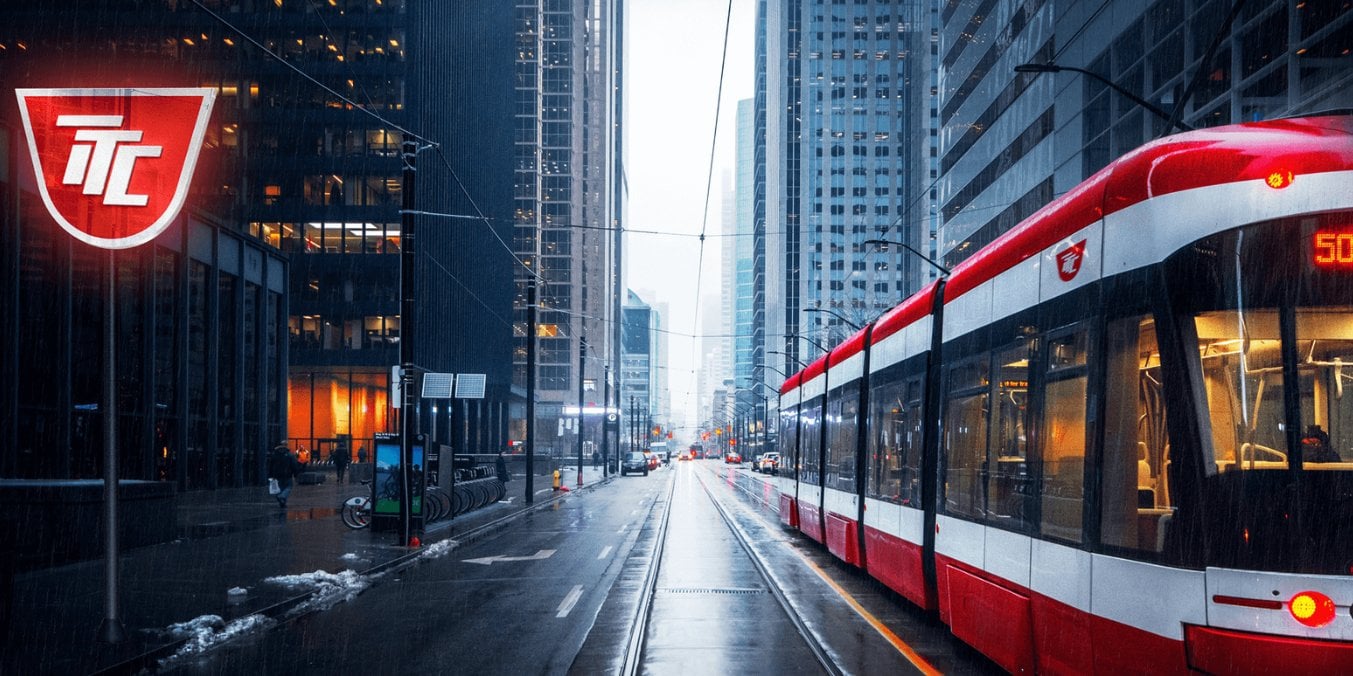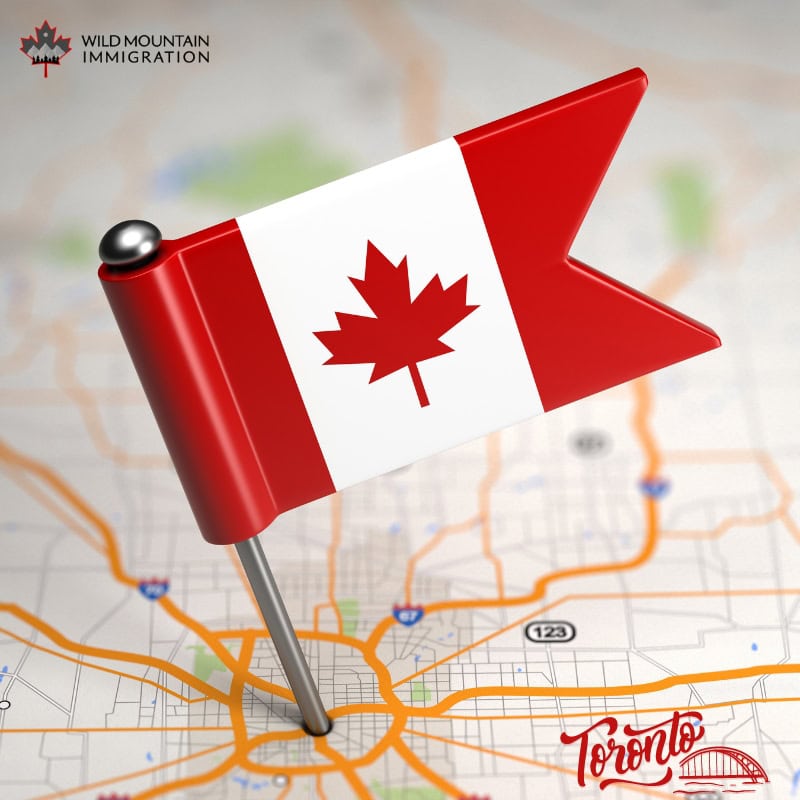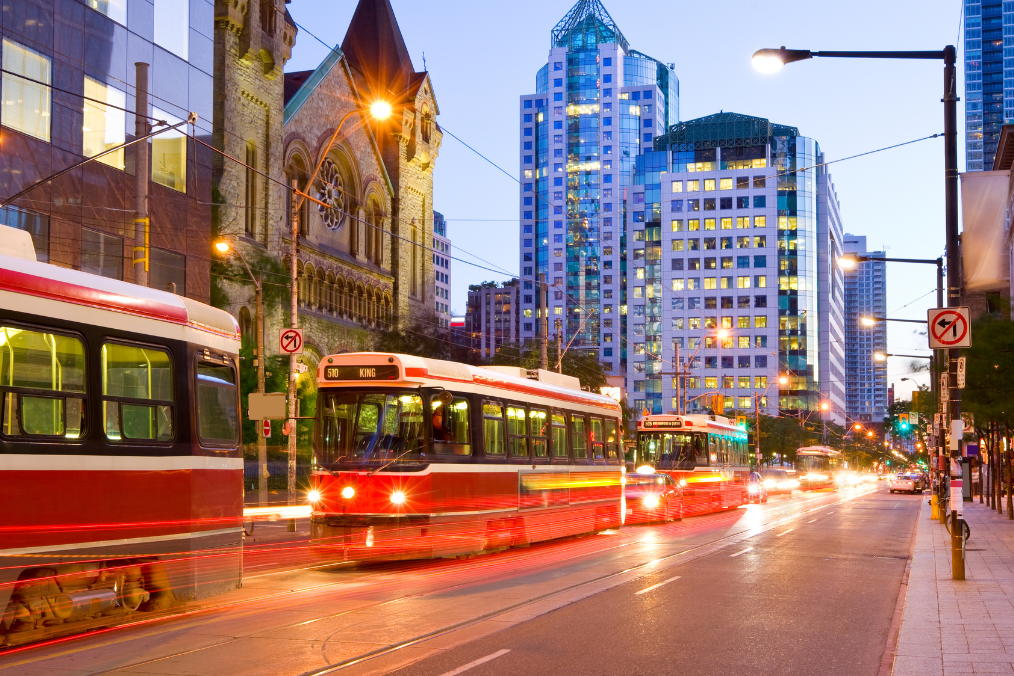Toronto, the bustling capital of Ontario, is known for its vibrant culture, diverse population, and thriving economy. As one of the most sought-after cities in Canada, it attracts individuals and families from all over the world. However, living in such a dynamic urban environment comes with its own set of financial considerations.
This blog post will explore the various aspects that contribute to the overall cost of life in Toronto. Whether you are planning to move to the city or are simply curious about the expenses, this comprehensive guide will provide you with valuable insights and help you understand what to expect.
By the end of this guide, you will have a better understanding of the cost of life in Toronto and be better prepared to manage your finances effectively in this vibrant city.
Immigration news directly into your inbox
Housing Costs
Housing is one of the most significant expenses you’ll encounter in Toronto. The city’s real estate market is known for its high prices, whether you’re looking to rent or buy a property. Understanding the housing costs in Toronto is essential for anyone planning to move to the city or considering a change in their living arrangements.
Renters Beware: Downtown Prices Bite
For renters, downtown Toronto presents a significant financial hurdle. The average monthly rent for a one-bedroom apartment ranges from a hefty $2,000 to $2,500. Two-bedroom units can set you back even further, reaching $3,000 to $3,500 monthly. However, some relief can be found outside the city center, where similar apartments might cost between $1,500 and $2,000. Remember, these prices can fluctuate depending on the neighborhood, building condition, and offered amenities.
Homeownership: A Hefty Investment
Those looking to buy a home in Toronto should be prepared for a substantial investment. The average detached house easily surpasses the $1 million mark, with prices climbing even higher in desirable neighborhoods. Condominiums offer a more affordable entry point, with average prices ranging from $600,000 to $800,000. However, condo prices can vary significantly depending on factors like size and location.
Beyond the Numbers: Cost of Living Impact
Toronto’s housing market significantly impacts the overall cost of living. Careful budgeting is essential to find a place that fits your financial situation. Explore different neighborhoods to find the best balance between affordability and commute times, access to public transportation, and proximity to desired amenities.

Transportation Expenses
Transportation is another crucial factor that affects the cost of life in Toronto. The city offers a range of options for getting around, including public transit, biking, and driving. Each mode of transportation comes with its own costs, and understanding these can help you budget effectively.
Public Transit: Convenient and Cost-Effective
The Toronto Transit Commission (TTC) operates the city’s extensive public transit system, a popular choice for residents. A monthly adult pass costs around $156, while single rides come in at $3.25. With buses, streetcars, and subways, the TTC offers convenient and affordable transportation for many.
Biking: Eco-Friendly on a Budget
Toronto’s growing network of bike lanes and bike-sharing programs cater to cyclists. Bike Share Toronto offers annual memberships for around $99, including unlimited 30-minute rides. This can be a healthy and cost-effective way to commute, especially for shorter distances.
Driving: Consider the Costs
Driving in Toronto comes with various expenses beyond the initial car purchase. Here’s a breakdown:
- Fuel: Prices fluctuate, but expect to pay around $1.40 to $1.50 per liter of gasoline.
- Insurance: Toronto car insurance rates are amongst the highest in Canada, with average annual premiums ranging from $1,500 to $2,000.
- Parking: Downtown parking can be particularly expensive, with monthly fees reaching $200 to $300.
Ride-Sharing: Convenience at a Price
While convenient, ride-sharing services like Uber and Lyft can add up quickly with frequent use. It’s wise to factor these costs into your overall transportation budget and consider using them alongside other options.

Utility and Internet Costs
Utilities and internet services are essential components of modern living, and they significantly contribute to the overall cost of life in Toronto. Understanding these expenses will help you manage your monthly budget more effectively.
Utility Costs
Utility costs in Toronto include electricity, heating, water, and garbage collection. On average, monthly utility bills for a standard two-bedroom apartment can range from $150 to $200, depending on the season and your usage habits. Here’s a breakdown of typical utility costs:
- Electricity: The average monthly electricity bill can be around $60 to $80. This can vary based on the size of your home and your energy consumption.
- Heating: Heating costs can fluctuate, especially during the winter months. On average, heating can add another $50 to $70 to your monthly bills.
- Water: The cost of water is usually included in the rent for most rental properties. However, if it’s not, expect to pay around $30 to $50 per month.
- Garbage Collection: Similar to water, garbage collection is often included in rent. If it isn’t, it might cost about $10 to $20 per month.
Internet Costs
Internet service is another essential expense. Toronto offers a range of internet service providers with varying plans and prices. On average, you can expect to pay between $50 and $100 per month for a reliable high-speed internet connection. The exact cost will depend on the speed and data limits of your chosen plan.
Bundling Tip: Bundling internet with cable or home phone can offer discounts. However, comparing plans and providers is crucial to find the best deal that meets your needs.
Planning and Budgeting Costs
The cost of life in Toronto is influenced by these utility and internet expenses. By planning and budgeting for these costs, you can better manage your monthly expenses and ensure you have all the necessary services to live comfortably.

Canadian Immigration Consultant
Need help with your immigration journey in Toronto?
Our professional team provides personalized support to guide you through the complex process. From work visas to permanent residency, let us help you achieve your goals.
Food and Grocery Prices
Food and grocery prices are another significant component of the cost of life in Toronto. The city’s diverse culinary scene offers a range of options, from budget-friendly groceries to high-end dining experiences. Understanding the costs associated with food and groceries will help you plan your budget effectively.
Grocery Shopping: Finding the Right Fit
Toronto grocery prices vary depending on your shopping habits and chosen stores. A single person can expect to spend roughly $300 to $400 monthly on groceries. Here’s a sample cost breakdown for common items:
- Milk (1 liter): $2.50
- Bread (500g loaf): $3.00
- Eggs (dozen): $3.50
- Chicken breast (1kg): $12.00
- Apples (1kg): $4.00
- Potatoes (1kg): $2.50
Cost-conscious shoppers can find savings at discount stores like No Frills or Food Basics. Conversely, premium stores like Loblaws or Whole Foods might have higher prices. Consider exploring farmers’ markets and ethnic grocery stores for fresh produce and specialty items at competitive rates.
Dining Out: Balancing Budget and Experience
Toronto’s vibrant restaurant scene offers everything from casual street food to fancy fine dining. Whether dining out is a regular treat or a lifestyle choice, understanding the costs is key. Here’s a glimpse into average dining expenses:
- Inexpensive restaurant meal: $15 to $20
- Mid-range restaurant (three-course meal for two): $70 to $100
- Fast food meal: $10 to $15
- Coffee at a café: $3 to $5
While dining out can be a significant expense, many residents strike a balance by cooking at home and enjoying occasional restaurant meals. Exploring different neighborhoods can also lead to discovering affordable and delicious hidden gems!
Planning and Budgeting Costs
The cost of life in Toronto is influenced by your food and grocery expenses. By planning your meals and shopping wisely, you can manage these costs and still enjoy the rich culinary experiences the city has to offer. Remember, smart grocery planning and mindful dining choices allow you to manage food costs effectively and still savor the culinary delights Toronto has to offer.

Healthcare and Insurance
Healthcare and insurance are essential considerations when evaluating the cost of life in Toronto. Canada is known for its public healthcare system, but there are still costs associated with certain services and insurance coverage.
Public Healthcare: Covered Essentials (Funded by Taxes)
Canada’s public healthcare system, with Ontario’s OHIP as an example, offers residents access to essential medical services. This includes doctor visits, hospital stays, and emergency care. Residents generally face no direct costs for these services, funded through taxes.
Important Note: OHIP coverage has limitations. Prescription medications, dental care, vision care, and some specialist services typically fall outside the scope of OHIP.
Private Health Insurance: Bridging the Gaps (Variable Costs)
Private health insurance plays a vital role by covering costs not included in OHIP. Many employers offer health insurance plans as benefits, but individual plans are also available. The cost varies depending on the coverage level and provider, with comprehensive plans averaging $100 to $200 monthly.
Planning Tip: Understanding what your private health insurance covers helps you manage out-of-pocket expenses.
Prescription Medications: Potential Out-of-Pocket Costs
Prescription medication costs can be a concern, particularly for those with chronic health conditions. While private insurance might cover some medications, others may require out-of-pocket payments. Prices vary significantly, so checking your insurance coverage for specific prescriptions is essential.
Dental and Vision Care: Budgeting for Additional Needs
Dental and vision care are crucial for overall health but not covered by OHIP. Regular dental check-ups, cleanings, and treatments can be expensive, averaging $500 to $1,000 annually per person. Vision care, including eye exams and glasses, can add another $200 to $500 per year to your expenses.
Planning and Budgeting Costs
The cost of life in Toronto includes these healthcare and insurance expenses. By understanding the division between public healthcare coverage and where private insurance or out-of-pocket costs may arise, you can effectively plan your healthcare budget and access the necessary medical services in Toronto.

Immigration news directly into your inbox
Recreational and Entertainment Costs
Toronto is a vibrant city with a plethora of recreational and entertainment options that cater to various interests and budgets. Whether you enjoy cultural experiences, outdoor activities, or nightlife, the city has something to offer for everyone. Understanding the costs associated with these activities can help you manage your budget while still enjoying what the city has to offer.
Cultural and Entertainment Activities
Toronto boasts a rich cultural scene with numerous museums, galleries, theaters, and music venues. Here are some typical costs for popular activities:
- Movie ticket: $15 to $20
- Museum or gallery admission: $10 to $25 (many institutions offer free admission on certain days)
- Theater ticket: $50 to $150, depending on the production and seating
- Concert ticket: $50 to $200, depending on the artist and venue
Seasonal passes or memberships to museums and theaters can provide cost savings for frequent visitors. Additionally, many cultural events and festivals offer free or low-cost entry, providing affordable entertainment options.
Outdoor and Fitness Activities
For those who enjoy outdoor activities, Toronto offers numerous parks, trails, and recreational facilities. Some popular options include:
- Gym membership: $40 to $100 per month, depending on the facility and amenities
- Yoga or fitness class: $15 to $25 per session, with discounts for multi-class packages
- Biking or hiking in parks: Free to minimal cost for bike rentals or equipment
- Ice skating at public rinks: Free to $10 for skate rentals
Toronto’s waterfront, parks, and green spaces provide ample opportunities for low-cost or free outdoor activities, such as jogging, picnicking, or playing sports.
Nightlife and Dining Out
Toronto’s nightlife is diverse, with a range of bars, clubs, and restaurants to explore. The cost of a night out can vary widely based on your preferences:
- Drink at a bar: $8 to $15
- Cover charge at a club: $10 to $30
- Dinner at a mid-range restaurant: $70 to $100 for two people
- Specialty coffee or dessert: $5 to $10
Exploring different neighborhoods can help you find more affordable dining and nightlife options. Many establishments also offer happy hour deals and discounts on certain days.
Planning and Budgeting Costs
The cost of life in Toronto includes these recreational and entertainment expenses. By planning and budgeting for your preferred activities and taking advantage of free or low-cost options, you can enjoy the city’s vibrant lifestyle without overspending.
Immigration news directly into your inbox
Childcare and Education Expenses
Childcare and education are significant components of the cost of life in Toronto, especially for families with young children or school-aged kids. These expenses can vary widely based on the type of care or education chosen, so understanding the options and costs is crucial for effective budgeting.
Childcare Costs
Childcare in Toronto is known to be quite expensive, particularly for infants and toddlers. Here are some average monthly costs for different types of childcare:
- Daycare centers: $1,200 to $2,000 per month
- Home-based daycare: $800 to $1,500 per month
- Nannies: $2,000 to $3,500 per month, depending on the hours and responsibilities
Some families may be eligible for subsidies to help cover the cost of childcare, so it’s worth exploring government programs and financial assistance options.
Preschool and Early Childhood Education
Preschools in Toronto also vary in cost depending on the program and location. On average, you can expect to pay between $700 and $1,500 per month for preschool programs. Some preschools offer part-time options, which can be more affordable and flexible for families.
Primary and Secondary Education
Public schools in Toronto are funded through taxes, so there are no direct tuition fees for residents. However, there may be additional costs for school supplies, extracurricular activities, and field trips. Public schools offer quality education, and many families choose this option for its affordability and accessibility.
Private schools, on the other hand, can be quite expensive, with annual tuition fees ranging from $10,000 to $30,000 or more, depending on the institution and level of education. Some private schools offer scholarships and financial aid, which can help offset the costs.
Post-Secondary Education
For families with older children, post-secondary education is another important consideration. Tuition fees for universities and colleges in Toronto can vary widely:
- University undergraduate programs: $6,000 to $12,000 per year for domestic students; $30,000 to $50,000 for international students
- College diploma programs: $2,500 to $6,000 per year for domestic students; $14,000 to $20,000 for international students
Additional costs for textbooks, supplies, and living expenses should also be factored into the budget.
Planning and Budgeting Costs
The cost of life in Toronto includes these childcare and education expenses. By understanding the options and planning accordingly, families can manage these costs while providing quality care and education for their children.

Conclusion
Living in Toronto offers a unique blend of opportunities, culture, and lifestyle, but it comes with its own set of financial challenges. Understanding the various aspects of the cost of life in Toronto is crucial for anyone considering a move to this vibrant city.
In summary, Toronto’s allure lies not just in its opportunities and vibrant culture but also in its challenges, particularly in managing the cost of living. This guide aims to equip you with the necessary insights to navigate these challenges and enjoy life in one of Canada’s most dynamic cities.
Thank you for joining us on this exploration of the cost of life in Toronto. We hope this guide helps you make informed decisions and prepares you for a successful and fulfilling life in this remarkable city.
Julce
Julce is an expert content writer specializing in topics about Canada, adept at blending practical advice with engaging stories that capture Canadian life.
Learn more about Toronto
You will find helpful information about setting up in this vibrant and lively city.
Living in Calgary vs Toronto: A Comprehensive Comparison
Discover which city suits your lifestyle best by exploring our comprehensive comparison. Is it Calgary or Toronto?
Discover Luxury: The Richest Neighborhoods in Toronto
Discover the richest neighborhoods in Toronto, where luxury homes, exclusive amenities, and vibrant communities await.
Discover the Best Neighborhoods in Toronto: Your Ultimate Guide
Explore the best neighborhoods in Toronto, each offering unique charm and lifestyle. Find your perfect spot in Canada's largest city with our ultimate guide.
- 1
- 2
Start Your Canadian Immigration Journey
Our experts make the process clear, stress-free, and successful, so you can move forward with confidence and focus on what matters most.

Contact Us
Immigration questions and service enquiries
Consultation
Speak to an expert
immigration consultant
"*" indicates required fields



